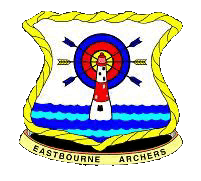
Archer development
There are four main disciplines recognised by Archery GB:
Longbow
The bows are made from laminations of different woods to give them strength and flexibility. The modern bows are based on the design of the Victorian Recreational Longbow and you only shoot wooden arrows with feather fletchings.
Barebow
The bows are of the style used in the Olympics but without any stabilisers and sights. You can shoot any type of arrow: wood, aluminium or carbon/aluminium.
Freestyle / Recurve
The same type of bow as used in barebow but with the addition of stabilisers and sight. As shot in the Olympics. Again, you can shoot any type of arrow, but aluminium and carbon/aluminium are more commonly used.
Compound
These bows look very complex as they have cams at the ends of the limbs and a cable system. When you draw the string back the weight increases very quickly but as the cams rotate the weight lessens quite dramatically, so it is easier to hold and aim at full draw. You also use a peep sight fitted in the string and a magnifying sight. You also use a mechanical release aid to shoot the bow. Aluminium and/or carbon/aluminium arrows are used.
 Compound |  Longbow |  Barebow |
|---|---|---|
 Recurve / Freestyle |
Coaching for Club Members
At present the club has eight qualified coaches: five at Level 1, one at Level 2 and one County Coach (Level 3 equivalent).
All the coaches are available to help all members by either offering advice, helping to set up equipment properly, bow tuning and performance coaching.
However, it is the members responsibility to approach the coach for any assistance that is needed. The coaches will not offer unasked for advice, unless they see something that seems to be potentially dangerous.
It is strongly recommended that all new members who have completed their beginner course talk to the coaches before they buy any equipment.
If you do ask a coach for help, you must accept that there are no “quick fixes”, it can take a number of sessions for improvements to show.
 Dave Egalton County Coach Level 3 |  Don McCallum Coach Level 2 |
|---|---|
 Paul Bridge Junior Team Leader |  Del Christie Coach Level 1 |
 Mike King Coach Level 1 |
|---|
 John Goult Coach Level 1 |
 Keith Billenness Coach Level |
Grades of Coach
A Level 1 coach has to complete a training course that takes place over 3 days together with 12 hours of supported practice, 4 hours of which must be observed by a mentor. They then have a 1-day assessment.
A Level 2 coach has to complete a training course consisting of 6 days training, plus a minimum of 14 hours homework and 24 hours of supported practice, 8 hours of which has to be observed by a mentor. This is followed by an assessment that lasts a minimum of 2½ hours.
A county Coach course consists of a minimum of 8 days training and 24 hours supported practice, 8 hours of which have to be observed by a mentor.
The top grade is Senior Coach and the course for this is delivered from a central location, usually Lillieshall National Sports Centre. It requires the attendance at various training weekends over a period of 18 months.
All grades are required to keep a comprehensive “Work Record” which has to be provided to the renewal panel when their coaching licence comes due for renewal, every 3 years.
All coaches are required to attend a recognised course for the protection of children and vulnerable adults and must submit themselves to an enhanced level of DBS check every 3 years.
All coaches must undergo Continual Professional Development (CPD) by attending workshops, conference, working with other sports professionals or working with more senior coaches, etc.
